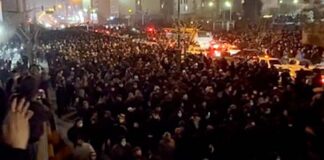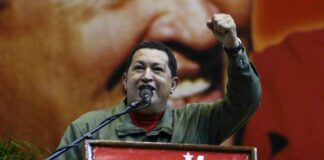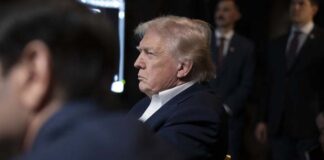After a week dominated by Barack Obama’s consecration at the Democratic convention in Denver, his Republican rival has succeeded brilliantly in upstaging him by selecting Sarah Palin as his vice-presidential running mate.
There seem to have been two main reasons behind John McCain’s choice of the Governor of Alaska.
First, it is a blatant play for disaffected women supporters of Hillary Clinton’s unsuccessful bid for the Democratic nomination.
Second, by selecting what Republican strategist Karl Rove calls a “gun-packing, hockey-playing woman” who is a member of Feminists for Life, McCain has thrown a bone to the powerful Christian right.
How well this ploy works out remains to be seen. Palin has served as governor for less than two years, and before that was mayor of a rural suburb of Anchorage. She makes it much harder for the Republicans to attack Obama for inexperience.
In any case, the real problem lies elsewhere—despite the desperate unpopularity of George Bush, Obama is barely ahead of McCain in the polls.
The two issues that broke the back of the Bush administration are the war and the economy.
McCain has tried to use the crisis in the Caucasus to turn the issue of war to his advantage.
Financial Times columnist Martin Wolf, an eminently establishment figure, has echoed Vladimir Putin, speculating that “superannuated cold warriors and neoconservatives” may have encouraged Georgian President Mikheil Saakashvili to attack South Ossetia as a way of provoking a crisis with Russia. “I might even imagine that this was also seen as a way to put John McCain in the White House,” Wolf added.
Back foot
Whether or not such speculations have any truth to them, Georgia has certainly put Obama on the back foot. Gideon Rachman, another Financial Times columnist, reported from Denver last week:
“I get the impression there is a genuine split in the Obama camp. There are some who are arguing against pressing for Georgian and Ukrainian membership of NATO, arguing that it would be irresponsible to give these countries a security guarantee.
“There are others, who are saying that backing down on Nato would send exactly the wrong signal to the Russians. It’s my impression that the ‘get tough’ crowd are prevailing.”
Obama has a delicate path to tread. One reason why he won the Democratic nomination was his opposition to the invasion of Iraq. But if he gives a hint that he won’t ruthlessly defend the US empire, the Republican attack dogs will tear him apart.
The same dilemma confronts Obama over the economy. In his speech in Denver he took no risks at all, pledging another tax cut to help cash-strapped consumers and repeating Bush’s promise to end the dependence of the US on imported oil.
The first is chicken-feed, the second cloud cuckoo land this side of a socialist revolution.
Apparently Obama’s economic team is also divided. A couple of months ago Naomi Klein pointed to the influence of free market economists.
Jason Furman, head of the economic policy team, is a defender of Wal-Mart. Austen Goulsbee, chief economic adviser, is a Chicago economist who got into trouble in February when he was caught out telling Canadian consular officials to ignore Obama’s public attacks on the North American Free Trade Agreement.
There are somewhat more left-wing figures around Obama, for instance James Galbraith, the son of the famous Keynesian economist JK Galbraith. Like his father, he advocates state intervention to manage and humanise the market.
Obama won his chance to run for president because of ordinary Americans’ profound disaffection with an economic and political system that is manifestly failing them.
This disaffection forces even insiders like McCain to run as populist “anti-Washington” candidates.
But Obama is also a product of the system and wants to win by its rules. So he can rattle the bars of the cage a bit, but not try to bust out. This may get him into the White House, but anyone who expects real change to follow is kidding themselves.
By Alex Callinicos, Socialist Worker UK





